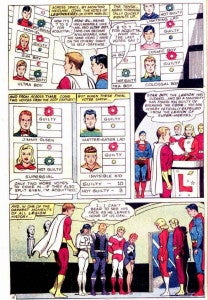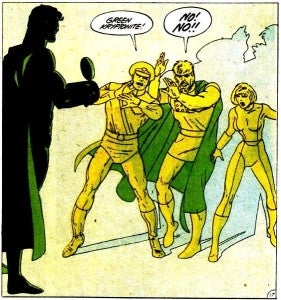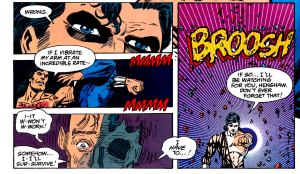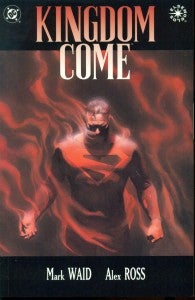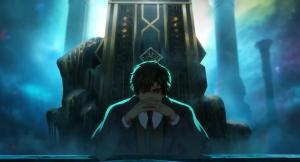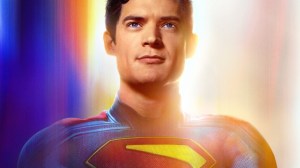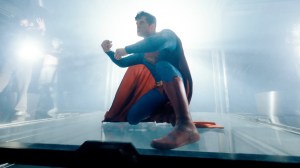In the course of the wide-ranging conversation that’s been taking place this week on the Internet about what Superman means to people, one of the most consistent claims is that Superman, pure and simple, doesn’t kill anybody.Certainly it’s a core part of his persona, and has been as long as I’ve been a reader, that he goes out of his way not only not to kill the villains, but to prevent civilian casualties during battle. Once, for instance, he gave up pursuit of Doomsday when he (Superman) had gained a strategic advantage in order to save a family trapped in a burning building. Doing so, he surrendered the high ground and ultimately was killed during the battle that ensued after he caught up with the monster.The idea that Superman is a hero who always finds the third way is a notion that’s deeply engrained in every modern retelling of his mythology. Kingdom Come, one of the most popular Superman stories of the last twenty years, was essentially predicated on this notion. But it’s not entirely true–Superman does kill, occasionally. When has he done so, and why? This might illuminate things a bit.This is, let’s note, not a comprehensive list but these are the most commonly-discussed instances of Superman killing someone or allowing them to die through failure to act. Obviously the latter happens from time to time in any heroic fiction, as it allows the threat to be neutralized without the hero getting blood on his hands.Warning: Spoilers ahead for a lot of stuff, including Man of Steel.Clones and RobotsSuperman pretty unambiguously doesn’t have a problem killing robots–or clones, given the right circumstances. Anything that doesn’t truly have free will and a “soul” should watch its back if it’s causing wanton destruction and threatening the safety of the citizens of Metropolis.Characters like Hank Henshaw, Brainiac and the like are a bit different, as was Bizarro during the Man of Steel era, when he was essentially an imperfect clone of Superman who meant well. Superman would often contribute to the “deaths” of these characters with the genre-savvy knowledge that they’d be back. And in at least two notable cases, Superman mourned Bizarro, whose death occurred during battle with Superman but of (relatively) natural causes.
Is the Man of Steel a Murderer?
In the course of the wide-ranging conversation that’s been taking place this week on the Internet […]



